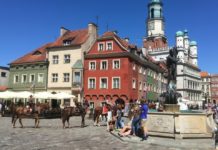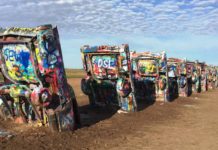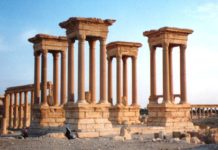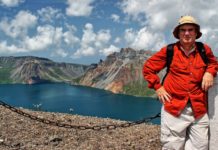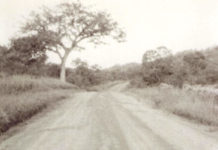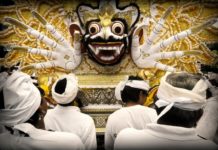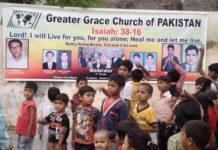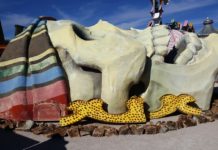CHAPTER 14
I’m not gonna let ’em catch me, no, not gonna let ‘em catch the midnight rider – “Midnight Rider” by Allman Brothers Band (1970)
After living on the Nile River for nearly three weeks, we drifted into Juba and the boat was lashed to a few crude wooden pilings that jutted out of the muddy bank.
A huge crowd of people had gathered on shore to greet us. Many were dressed in tribal clothing. Some were holding spears or beating on drums, and others were chanting and singing. The scene reminded me of an old Tarzan movie. Several shouted out to the boat as they recognized their loved ones, while those onboard leaned out to wave and yell back.
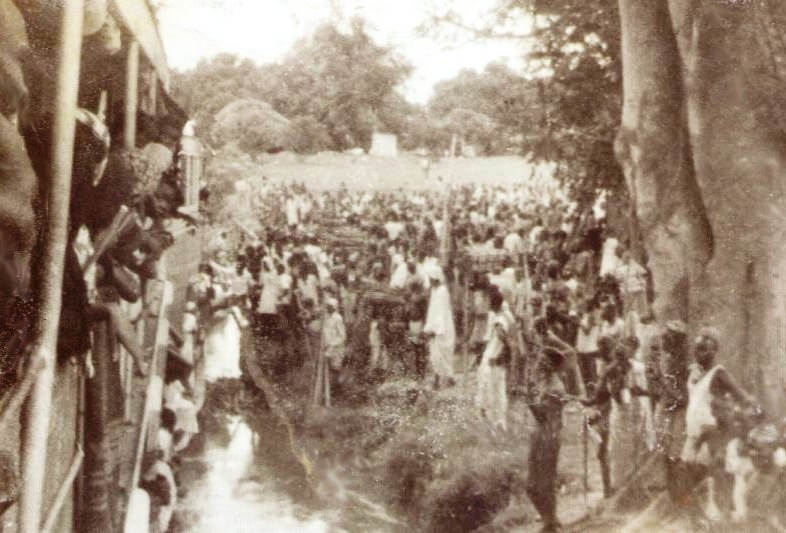
Once the barges were secured and the gangplank was dropped, the crowd tried to get closer while the passengers rushed to get off. It was a mad, out-of-control situation. A group of soldiers on shore came charging through the mob, swinging their clubs and shouting for everyone to move aside so we could disembark.
When the people in front of us began to move forward, Ted and I forced our way through the mass of sweaty bodies, and we pushed ourselves into the middle of the crush. In all of the excitement, we managed to slip away and walk off without encountering the captain or police.
“I was terribly hungry and getting weak, but food was nowhere to be found.”
Hundreds of people were milling around, and large trucks were pulling up to haul families and their belongings off into the interior. Arab soldiers were everywhere, and all of them were toting machine guns. In the commotion, we lost Bob and Gordon, but I didn’t give it much thought because I was so relieved to have avoided Captain Ahab and the local magistrate.
It felt good, once again, to have firm ground beneath my feet. Ted and I headed down the only road in sight. The air was heavy and humid, and the jungle was thick with trees on both sides of the narrow dirt road. Occasionally, we’d see a donkey pulling a cart carrying refugees from our boat.
A cluster of buildings caught our attention, so we went door to door hoping to find some food. Unfortunately, every one of them was closed. Since darkness was approaching, we decided to camp in a place where we were not likely to be seen. The spot we chose was behind a huge tree next to a water tower that had JUBA painted on it in big white letters.
Early the next morning, we continued down the road toward the Ugandan border. For the past three days, we’d eaten nothing more than two bowls of packaged soup and our remaining halva. I was terribly hungry and getting weak, but food was nowhere to be found.
A large truck carrying passengers came roaring down the road. I watched as it stopped ahead of us and let out a group of people who had been sitting in the back. The driver jumped out of the truck to assist them. He made a driving motion with his hands to see if we wanted a ride.
Ted asked, “Is this the way to Uganda?”
“Yes,” he replied, “This way. Uganda!”
We bounced along the road in the back of a truck full of refugees. At each one of the truck’s frequent stops, a few people got off and disappeared into the jungle, presumably heading back to their communities. After hours of slow, uncomfortable traveling, we arrived in a tiny village near the border.
“I really needed to get my reckless behavior in check before I wound up in some serious trouble.”
When I asked where we could get food, a woman pointed to a small crowd. We dashed over and found a man serving soup from a large pot into bowls that looked like hollowed out gourds. One of the villagers looked at us and said, “Fish soup.”
Nobody was asking for money. It was simply first come, first served. Although the soup tasted pretty good, I sure wished that I had a big piece of bread to go with it. But it was certainly better than anything I had eaten in days.
Then I noticed something strange in my bowl. I reached in and pulled out what appeared to be part of the head and skeleton of a lizard. I gagged and immediately tossed the rest of the soup into the bushes. Ted was almost finished, and he hadn’t found any skeletal remains, but he dumped out what he had left.
Ted and I walked toward the border, which was about a mile away. Following us were a couple of curious young African boys who were fascinated by our every move. In the distance, we watched as two men jumped out of a truck similar to the one we had been driven in. As I got closer to them, I realized it was Bob and Gordon!
“Hey, don’t bother looking for any food here,” I advised, “unless you’re interested in lizard soup!”
“Maybe we’ll see a great big fucking McDonald’s right on the border,” Gordon fantasized. “The Golden Arches would never look so good!”
As we walked along, Bob told us that both the captain and the police had asked all the foreign passengers where to find us. None of them had seen us get off the boat.
When I told Bob and Gordon that we had camped next to the water tower, they could hardly believe it. It turned out that we had slept right behind the police station! They laughed their asses off, but I didn’t think it was all that funny. Once again, I had barely dodged disaster, and I knew that I really needed to get my reckless behavior in check before I wound up in some serious trouble.
“As soon as the words came out of his mouth, Ted knew that he had gone too far.”
About an hour later, we reached a slight rise in the road and spotted a handful of one-story buildings. Beyond them was a wooden foot bridge and more buildings on the other side. As we got closer we saw a sign which said WEL COME TO UGANDA in hand painted letters.
“Yay! Yeehaw! Hooray! Welcome to Uganda!” we all cheered.
“Hey, you guys, get over there in front of the sign so I can take a picture,” I instructed.
Bob, Gordon, and Ted struck a pose, and I snapped the photo. We were so happy to be there, that we skipped and danced across the bridge. On the other side, two uniformed men came out of a white building.
“Jambo, habari!” I exclaimed.
One of them softly responded, “Jambo.”
The other one barked, “You have passports?”
“Yeah, we have our passports right here,” said Gordon, and we pulled out our papers.
The officer looked serious. He appeared to be in his forties, wasn’t too tall, and had a sturdy build with a slight gut. He took our passports, turned around, walked into his office, and motioned for the four of us to follow.
After examining our passports and checking our visas, he disappeared through another door. A few minutes later he returned with a man in a dark khaki uniform with an insignia stitched on the front.
The superior announced, “You are not permitted to enter. We have heard about you. You are American hippies, and we do not want you in our country!”
We stood there in total shock.
“What do you mean?” Gordon asked. “We have visas! Why would the embassy give us a visa if we aren’t allowed to come into the country?”
“And besides,” I added, “there is no place to go back to, sir. We have just come from Sudan, where there is no food and no place for us to stay.”
“I am sorry,” he replied. “We cannot permit you to come in. You must leave now!” he stated with his voice rising.
Bob added, “But sir, we are not hippies. We have long hair because we have been traveling for a long time in Sudan. We came all the way up the Nile from Khartoum. We spent time in Libya and Egypt and were unable to get haircuts. But we are definitely not hippies!”
The soldier thought about it for a moment and frowned.
“No!” he asserted, sounding even angrier. “You need to return to Sudan!”
He escorted us outside and waited for us to turn around and cross the bridge.
“Wait a minute,” I said to my friends. “I have an idea.”
I reached into my backpack and took out my Swiss Army knife.
“Look,” I said. “We’ll cut our hair right now. How about that?”
I handed the knife to Ted, pulled my hair back into a ponytail, and instructed, “Cut it off.”
Ted sawed through my thick hair and chopped off a seven-inch swath. It fell to the ground.
I took the knife from him and proceeded to cut his hair the best I could. Then, Bob and Gordon cut each other’s hair. Bob’s foot-long rat tail now was now lying in the dirt. When we had finished, we walked back to the official and handed him our passports.
“Now may we enter?” Ted said sarcastically.
The man looked at us, thought about it for a moment, and shouted, “No, you cannot. You are still dirty hippies, and you must leave immediately!”
He pointed to the bridge, and we reluctantly walked toward it. What the hell were we going to do now? Where were we going to find food? Once we were back in Sudan, we sat under a tree and debated our next move.
A group of lively local kids gathered around us, and Gordon pulled out his guitar and began to play and sing. The children were eating soup, and we asked where we could get some. One of them led us across the road to an old woman who was cooking a pot over an open fire. She gave each of us a bowl of what the locals called “plantain bananas for cooking.” Our meal was a lot more edible than the one with the reptile carcass, and it filled us up for the first time in days.
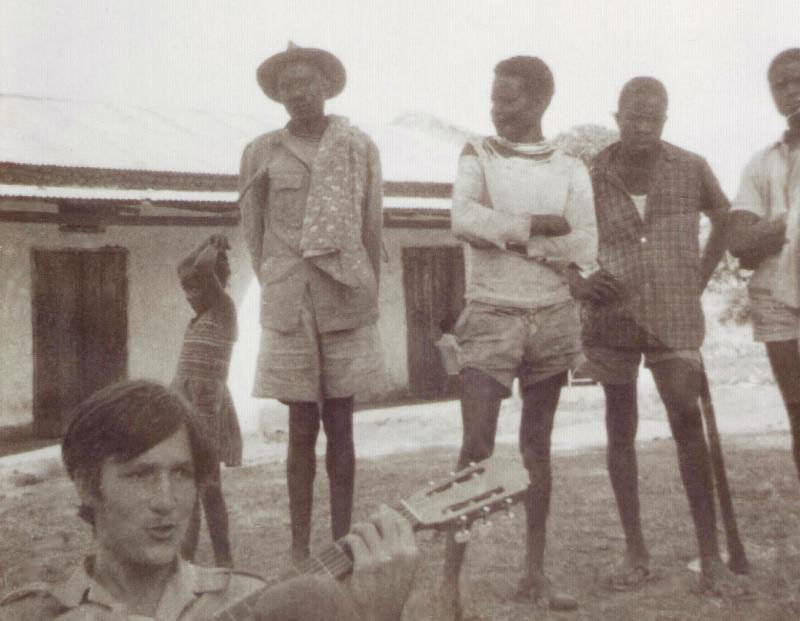
Bob had a razor blade in his shaving kit, and he suggested that we all trim our hair. If we looked a little neater, he speculated, perhaps the border guard would change his mind. The next day, we washed up and made ourselves as presentable as possible. Again we crossed the bridge, and the same guard came out of the building.
“Jambo! Good morning, sir!” I said crisply and politely to him as I bowed slightly.
Bob added in his most restrained manner, “We have cleaned ourselves up the best we can to show you that we are worthy of coming in.”
We held out our passports, but he shook his head, refused to take them, and said, “You have been told that you may not enter at this post, and that is final!”
“What do you mean at this post?” I asked him.
“There is no other place to enter into Uganda!” Ted yelled at him.
The guard stared angrily at us, pointed toward the bridge, and said, “You must go away now!”
Dejectedly, we trudged back to Sudan. The only alternative was to walk through the jungle and sneak in. While we agreed that we could probably do it, none of us were willing to take the risk.
That evening, we dined on plantains with the group from the previous night and camped in the same spot. We waited until mid-afternoon the following day before trying our luck at the border.
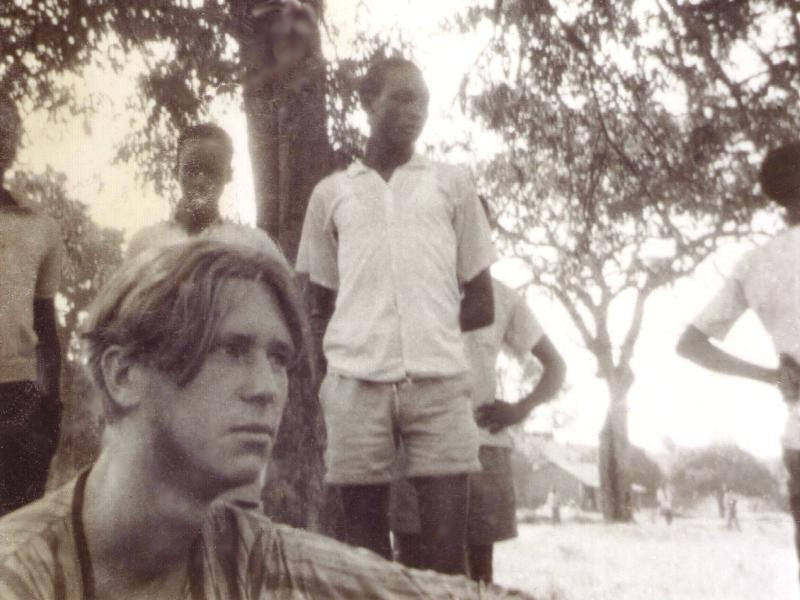
With freshly washed faces and newly cropped and combed hair, the four of us made a third attempt to enter Uganda. At first, it looked like we might have come on the angry guard’s day off because he was not visible as we approached. But as we got close to the office, he came storming out.
Before the officer could speak, Ted implored, “Sir, please. We are in trouble and are asking for your mercy.”
I looked at Ted with surprise as if to say, “Good line of bullshit, buddy. You sound like me!”
“Please help us, sir,” Ted continued. “We are very hungry, and we cannot find food in Sudan. We are kindly asking you to allow us to cross into Uganda. There is no other possible way to continue traveling.
The guard listened carefully to Ted then slowly shook his head.
“No!” he snapped. “I cannot allow it. I am telling you this many times now…”
“Look,” Ted interrupted. “We have done everything you have asked! We cut our hair, washed up, and have tried to present ourselves better. You have seen our legal passports and visas to come into this country. There is no good reason to prohibit us from visiting.
The guard looked at him and said, “Your hair is still very long!”
“We are not like you!” Ted replied with his voice quivering. “White people don’t have hair like yours!”
As soon as the words came out of his mouth, Ted knew that he had gone too far. The guard was furious. He interpreted Ted’s statement as a slur on his African appearance.
Ted quickly tried to backtrack and proposed, “Maybe I will shave my head.”
“Hey, no man has hair like mine!” Gordon said trying to lighten the mood.
“I will tell you what,” the guard said as he pointed to Bob and me. “You and you can come in.”
Then he pointed to Ted and Gordon and added, “But you two must leave.”
“Can’t you allow us to stay together?” I pleaded.
“If you want to enter, then do so, but these two will not be permitted.”
“You go ahead,” Ted advised, “We’ll find some way to meet up with you in Kampala.”
He shot the guard a nasty look and walked toward the bridge.
I ran after him. “Hey, what the fuck are you going to do?” I asked.
“I don’t know, man, but that asshole is never going to let me in, so there’s no use in holding you up.”
Reluctantly, I agreed. Bob and I gazed sadly as Ted and Gordon returned to Sudan. We gave the guard our passports, and he disappeared into his office. Without knowing if he was going to keep his word, we patiently waited in the sweltering heat. After what seemed like an eternity, he returned, handed us our passports, and stated, “You are only allowed to stay for two weeks.”
“Two weeks?!” I exclaimed. “Our visas say we can visit for two months!”
“I am telling you that you can visit for two weeks. Do you understand?”
“Yes, of course. I understand!” I responded respectfully.
I wondered to myself, “How could this pipsqueak of a border guard in a remote part of the jungle override my official visa?”
But he did. I looked in my passport and saw that he had written in cursive with a ballpoint pen next to the entry stamp: Permitted to enter Uganda on condition the bearer does not stay longer than two weeks. Then he signed his name in big, flowing letters right across the entry stamp. I bet that made him feel important.

Bob and I walked down the road. A Land Rover approached, so we stuck out our thumbs and it pulled over. Two African soldiers sat in the front, and they motioned for us to throw our stuff in the back and hop in.
“Where are you going?” The guy at the wheel asked us.
“Kampala,” I answered.
“Ahh, Kampala,” he said. “We can take you part of the way.”
As we drove along, he talked in an African dialect with his partner. Every now and then, he looked in his rearview mirror and yelled a question to us over the roar of the engine.
“Where have you come from?”
“We’ve come from Juba and before that Khartoum,” I yelled back.
“You are Americans?” he asked.
“Yes, we are American tourists,” Bob replied.
We rode along for an hour until the soldiers reached their turn-off. We got out, thanked them, and continued walking. Miles later, no other vehicles had come by. As the sun was setting, we came upon a church.
“From the minute I crossed into Uganda, I could tell that things were tense”
An African man came out of the building and greeted us warmly. Joshua lived in the church with his wife and two young children. The family treated us to a feast of goat stew, plantains, fresh bread, and mango. Joshua told us that the church was temporarily closed, and that he and his wife were the caretakers.
Over dinner, we related the difficulties we encountered trying to enter Uganda. In a voice filled with fear, Joshua whispered about General Idi Amin, the country’s military dictator. He explained that Amin had turned the army into his personal security force and had thousands of his enemies killed. The entire population lived in fear; their future was uncertain.
Even more terrifying than the Army were the secret police, the fiercely loyal young men who came from the same tribe as Amin and did not wear uniforms. The brutal thugs had caused many people to simply disappear.
From the minute I crossed into Uganda, I could tell that things were tense, but I chalked it up to either the civil war in Sudan or a basic fear of foreigners. Listening to Joshua made me realize that the situation was extremely dire.
Joshua allowed us to camp behind the church. The next morning, he fed us a hearty breakfast, and for the first time in days we had full stomachs. As we headed down the road, a military truck covered with canvas pulled over, and the driver told us to hop in. Bob and I looked at each other. Was it safe to go with these soldiers? Without a lot of options, we jumped into the back. Sitting inside were Ted and Gordon!
“Whoa!” I screamed. “How’d you guys get here?”
Bob asked, “Yeah, how the hell did you get past that crazy man?”
“Especially you!” I laughed while pointing to Ted.
After another full day of pleading, the officer had finally relented and let them cross the border. Maybe the guy felt he had fucked with them as much as he could. However, they got the same two-week limit written in their passports.
“Hey, we have to go to Murchison Falls,” Ted announced excitedly. “It’s the biggest game reserve in Uganda, and it’s on our way to Kampala. The Scandinavians on the barge said that we shouldn’t leave Uganda without checking it out.
“I’d rather just get to Kampala first,” Bob replied. “We can always come back and see it, especially if we get the visa extensions we’re entitled to.”
“But what if they don’t give us the extension?” Ted asked.
Ted and I decided to visit the waterfall; Bob and Gordon would push on to Kampala. Hopefully, we’d catch up with them there. When the truck came to the turnoff for the Falls, we got out and hitchhiked west.
For the next two days, we explored Murchison Falls National Park, which was filled with elephants, hippos, and other animals. We took a cruise that went down a river of crocodiles to a jaw-dropping view of the waterfall. One local told me that the falls were created by the force of the Nile squeezing through narrow rock formations. He also explained that they were discovered by British explorers who named them after the President of the Royal Geographic Society.
After our recent struggles, the park was a pleasant change. Thankfully, we were no longer hungry because plenty of food was available, albeit at expensive, tourist-attraction prices.
Late one evening, I repeated what Joshua had told me about General Idi Amin. Ted had heard similar stories before we had all met up again. We were both nervous about what was going on in Uganda.
“The consul in Khartoum warned us about this,” Ted said. “Do you think we’ll be OK?”
“I guess we’ll find out when we get to Kampala.”


